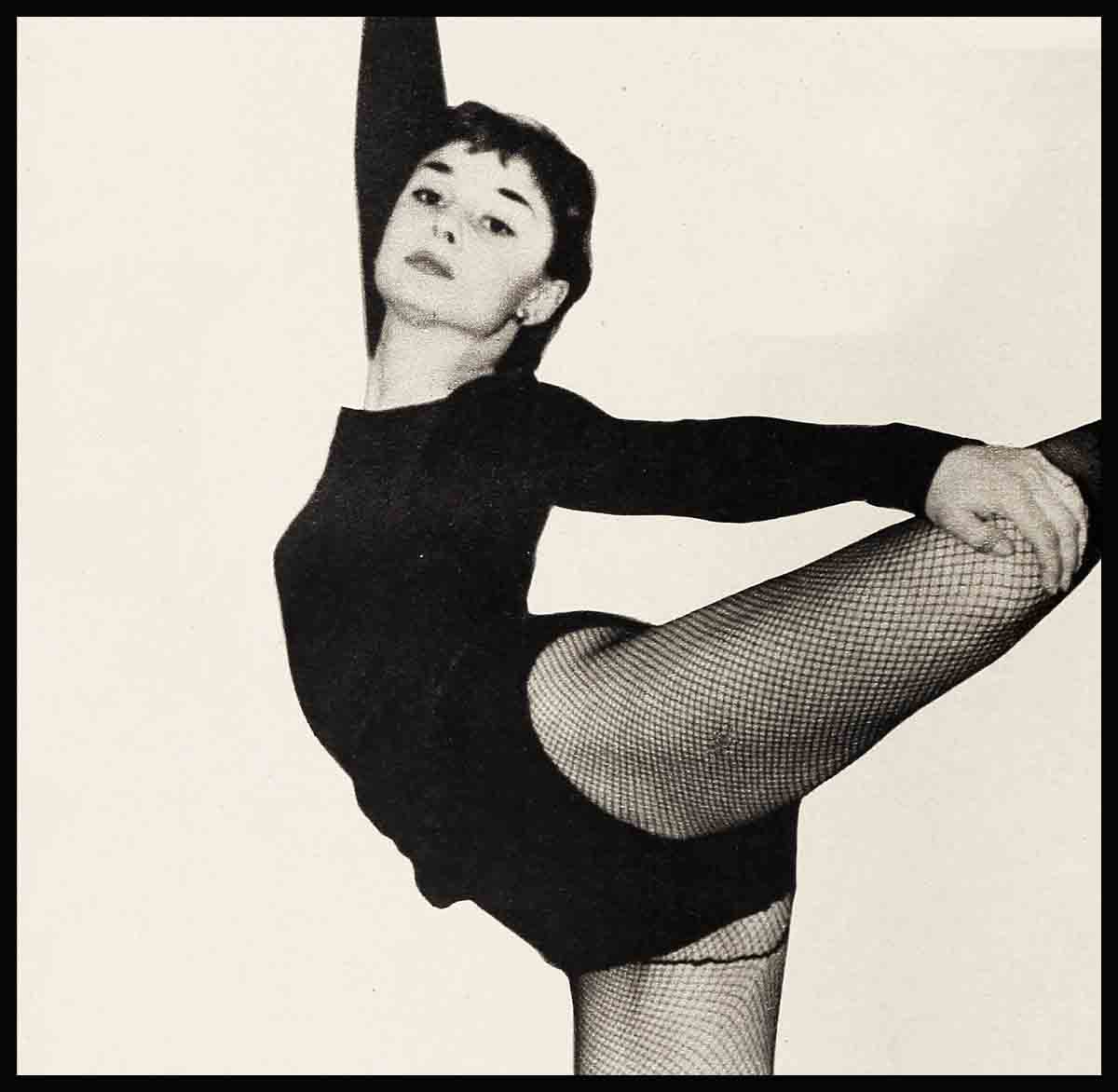
Audrey Hepburn’s True Love
It is practically standard procedure in Hollywood for a new feminine star to declare that she is completely disinterested in romance, and then in almost the next gasp to announce her engagement. But it was not so with Audrey Hepburn.
Audrey came into the limelight already engaged, and just before she stepped across the magic threshold of fame she first closed the door on romance.
She became engaged to James Hanson, a wealthy young Englishman, some time before the stardust had settled in her short wispy hair, but unlike others before her in a similar situation, she took stock and decided on a saner course. As it turned out, she seems to have come to stardom eligible but unattainable.
Since that time less than a year ago, when she and Hanson called off their engagement after a series of adult talks about their respective futures, Audrey has had only to flick her eyelashes at a man and her name became coupled with his in print. Everyone in Hollywood was waiting for her to fulfill the time-worn formula, but so far she has failed to come up with the post-stardom engagement announcement.
Having been engaged once, it was assumed by those who cover Hollywood that Audrey was an easy prey to romance; but that was before they had come to know her better. Moreover, the Hollywood scribes had not taken the trouble to evaluate the real facts of her engagement to Hanson.
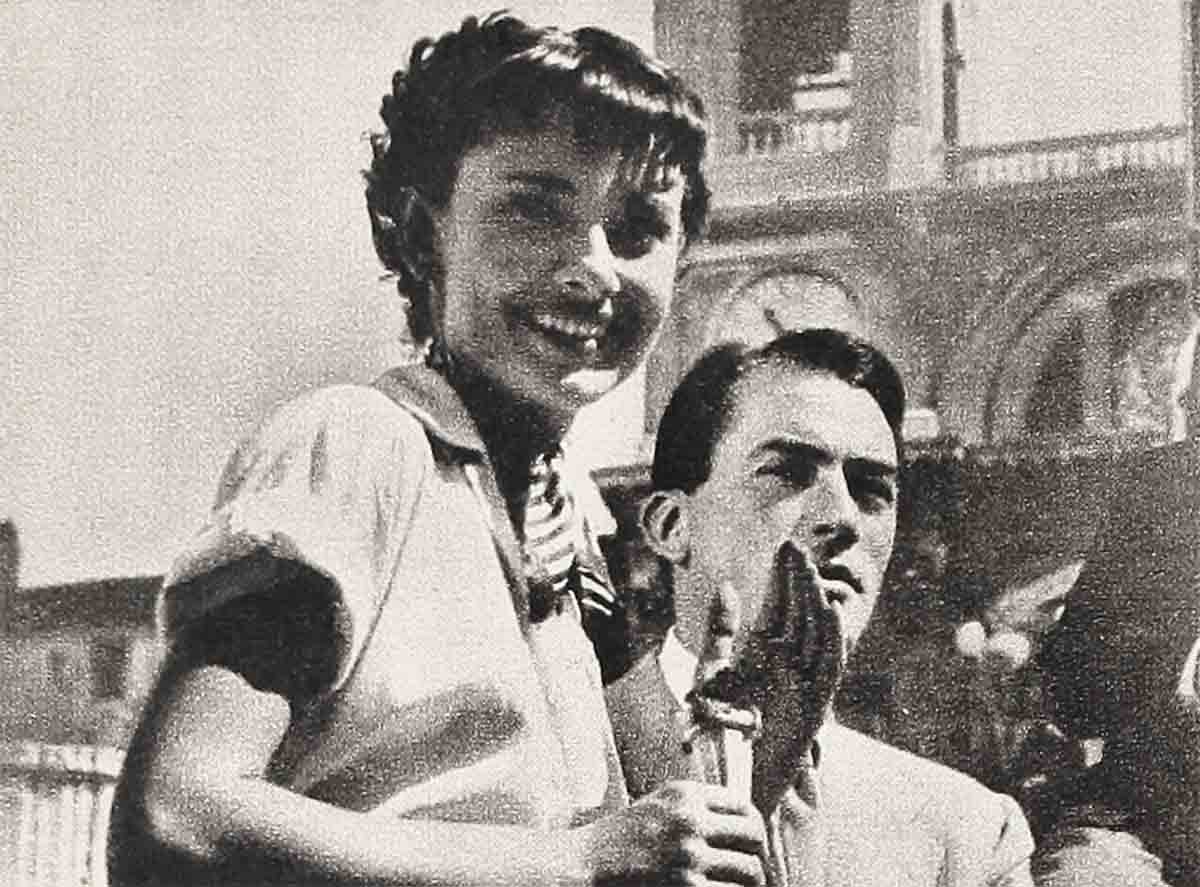
The well-endowed Englishman had courted her for two years before Audrey consented to the engagement, but even this solid prelude to a possible marriage did not prevent Audrey from taking stock when a less mature girl her age might have lost her head in the first dizzy onrush of success.
It is true that “Roman Holiday” had not been released, but she had been highly acclaimed for her role in “Gigi” on Broadway, and in talks with William Wyler, who had directed her in the picture, she had certainly been led to believe that “Roman Holiday” had turned out to be something special for her. In fact, Paramount had already arranged for her to come to Hollywood on another assignment.
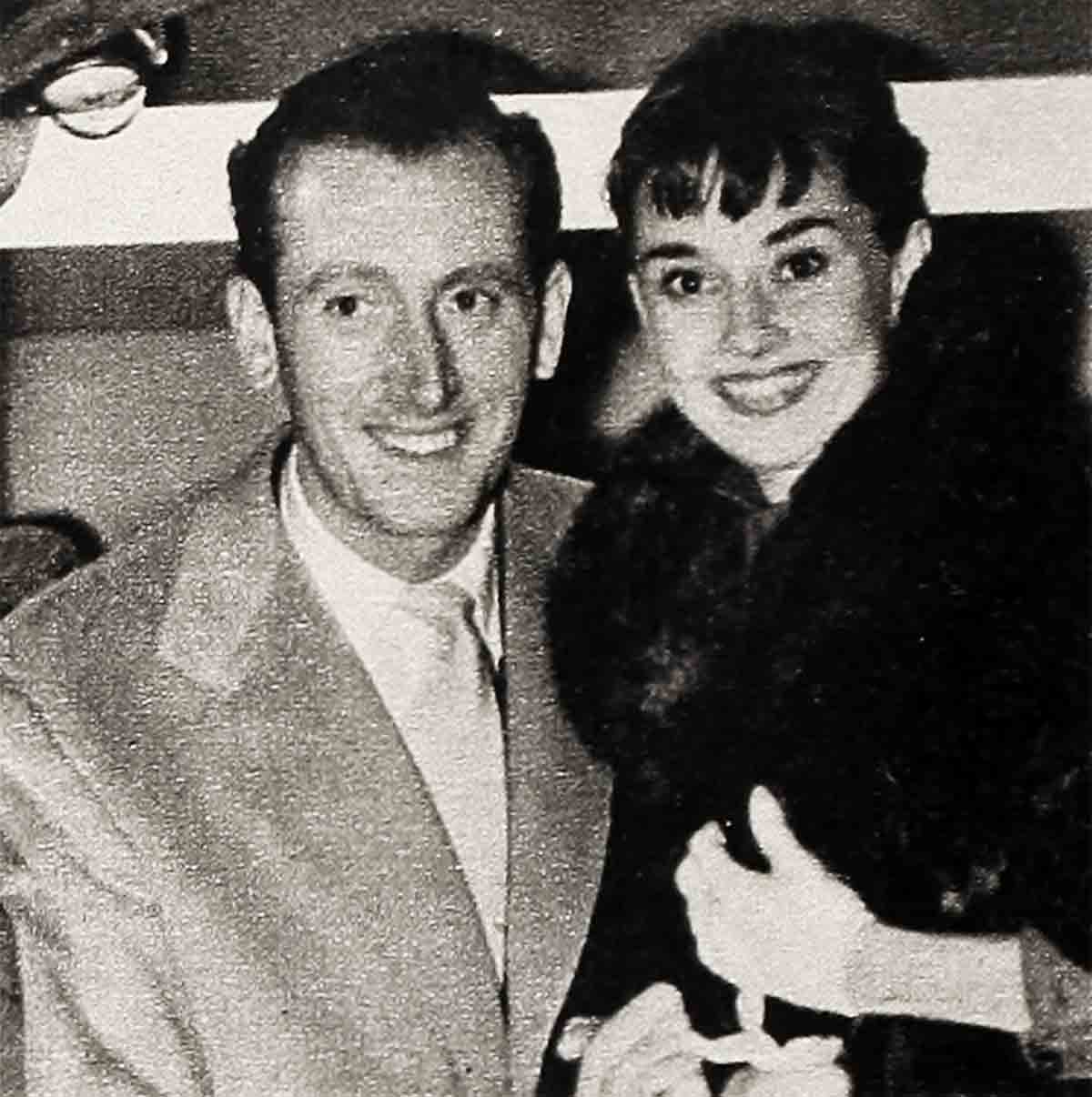
“It was just too much to expect of a man who loved me to ask him to share me with my career,” Audrey told me on the set of “Sabrina Fair” at Paramount Studios when I quizzed her on her romance with Hanson. “He and I had long talked about what had happened to me since we became engaged and I decided it wasn’t fair to marry him and then have to leave him from time to time on account of my work.
“I feel a girl must be completely sensible about a step as serious as marriage because to me it is a very serious step. It would also be unfair to have children as long as I have not carried out my hopes for a career to a successful completion.”
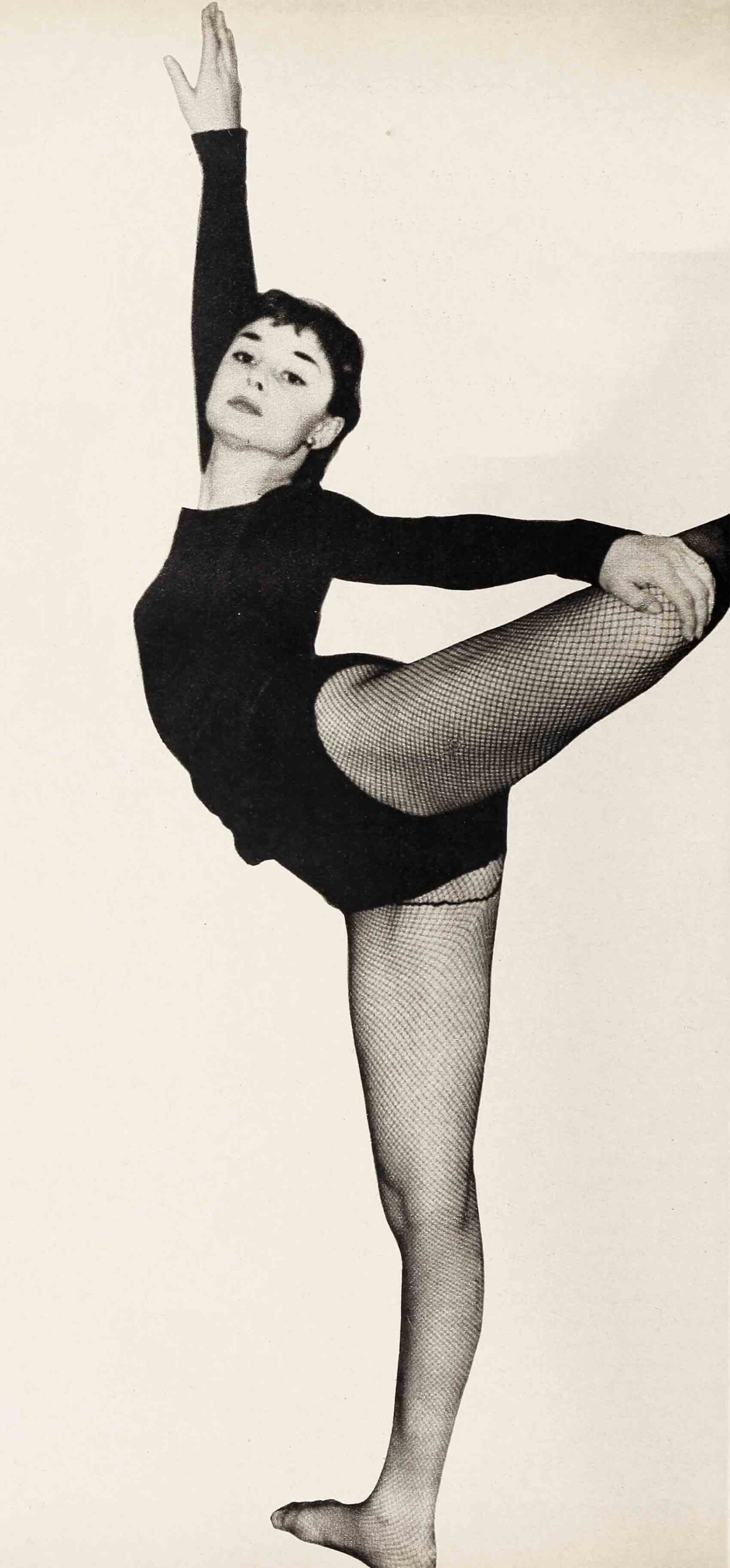
She and Hanson remain very dear friends, and it is by no means out of the question that they will eventually wed, because it is apparent that when a man is charmed by Audrey he stays charmed.
This has certainly been true during her stay in Hollywood while making “Sabrina Fair.” The girl conveys to anyone she meets that same regal charm that was so evident in her “Roman Holiday” characterization. This charm is doubly effective because it is so effortless. Audrey isn’t trying to sell herself. She is just being Audrey.
But with a charmer like this, everyone who came to know her insisted that there just had to be a favorite man somewhere in the background. However, no one could discover him. Audrey stuck to her job with Spartan self-discipline and refused to be seen around the night spots of the film colony.
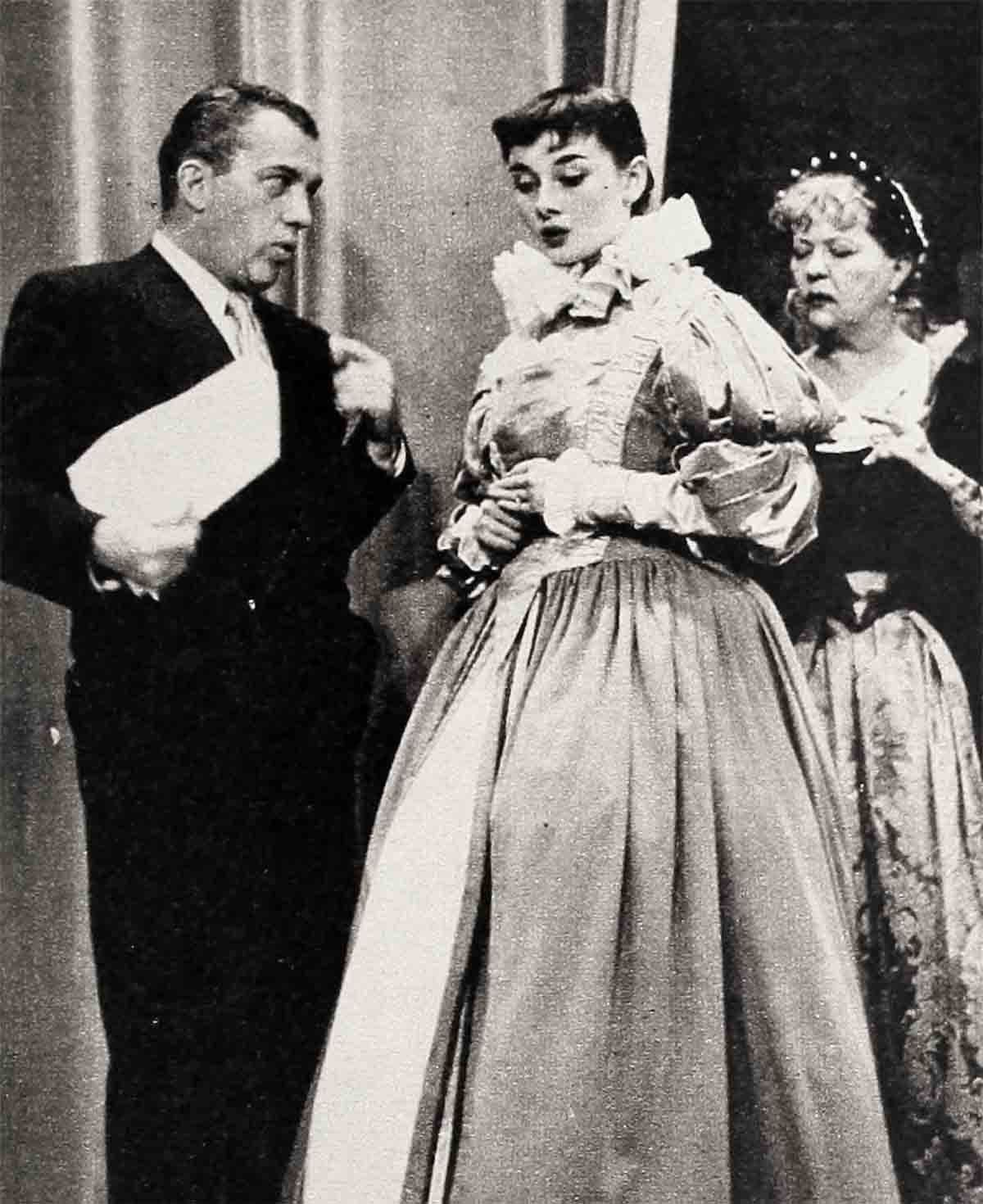
At a time when her name was on everyone’s lips because of her “Roman Holiday” hit, it was only natural that talk would arise about her and Gregory Peck—he who had worked with her for months on the picture in Rome. How could he have escaped being impressed by such a refreshing personality, the gossips asked.
It had been generally accepted in Hollywood that Greg and his wife, Greta, had hit a real snag in their marriage. The assumption had been based largely on the fact that. Greg had been in Europe for well over a year and that he had taken assignments that would keep him abroad indefinitely.
The full facts of the Peck marriage situation, however, have never been revealed, but as far as Audrey is concerned light was shed on her true relations with Greg soon after she arrived in Hollywood.
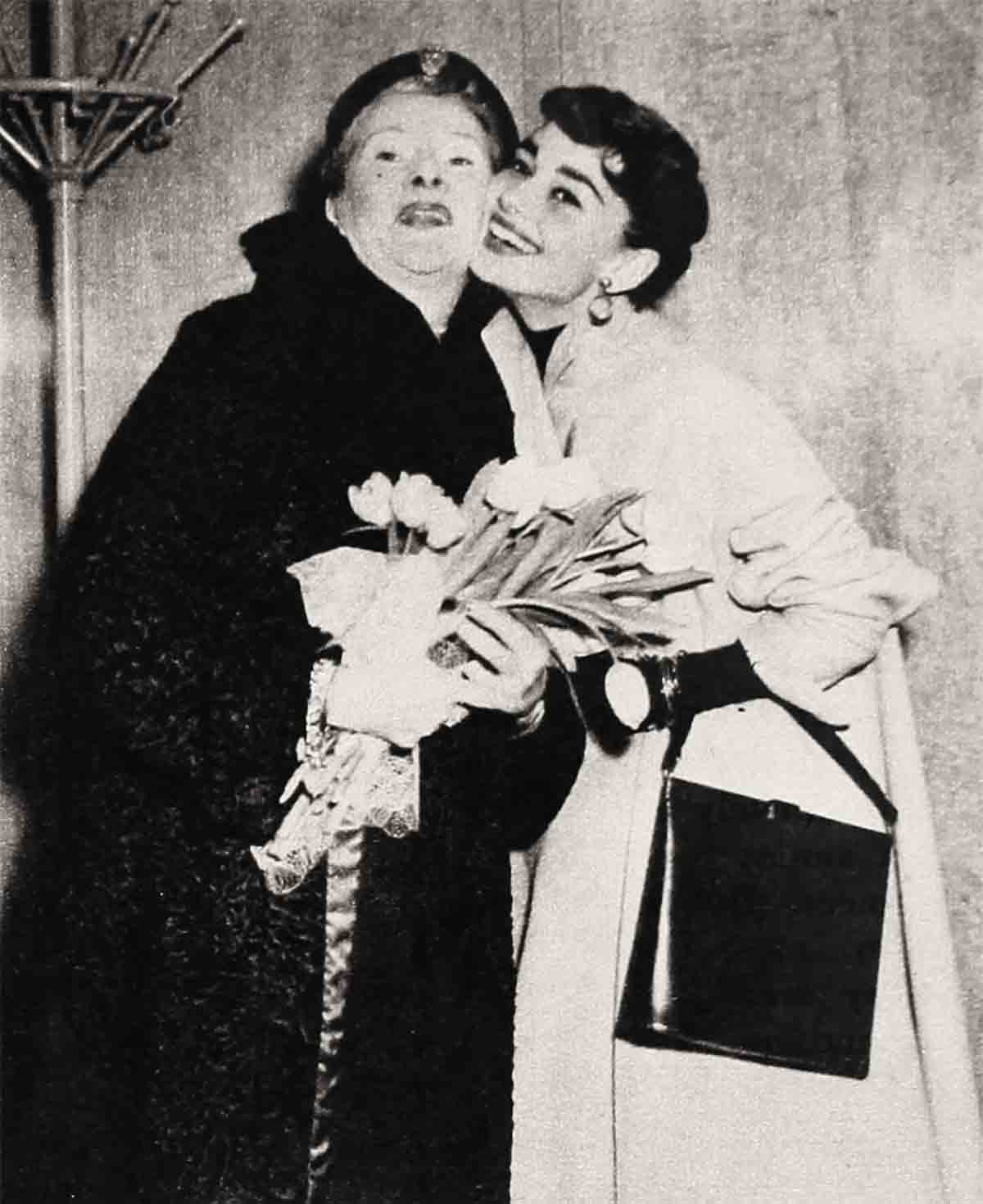
It was learned that not only had she made a friendly phone call to Greta Peck to relay Greg’s greetings, but that she had fulfilled a similar request from him by phoning members of his family in San Francisco for the same friendly purpose.
Much had been made for a brief time over Bing Crosby’s attentions to Audrey. After all, what could have been more natural than her succumbing to the well-known Crosby charm, especially since he was the most eligible male in Hollywood?
As it turns out, Bing was impressed. He had taken Audrey to a dinner party at the home of Billy Wilder, who was directing her in “Sabrina Fair,” and for some time after this, the groaner was very attentive to her on the Paramount lot, where he was making “White Christmas” on a sound stage adjoining the one where Audrey was working.
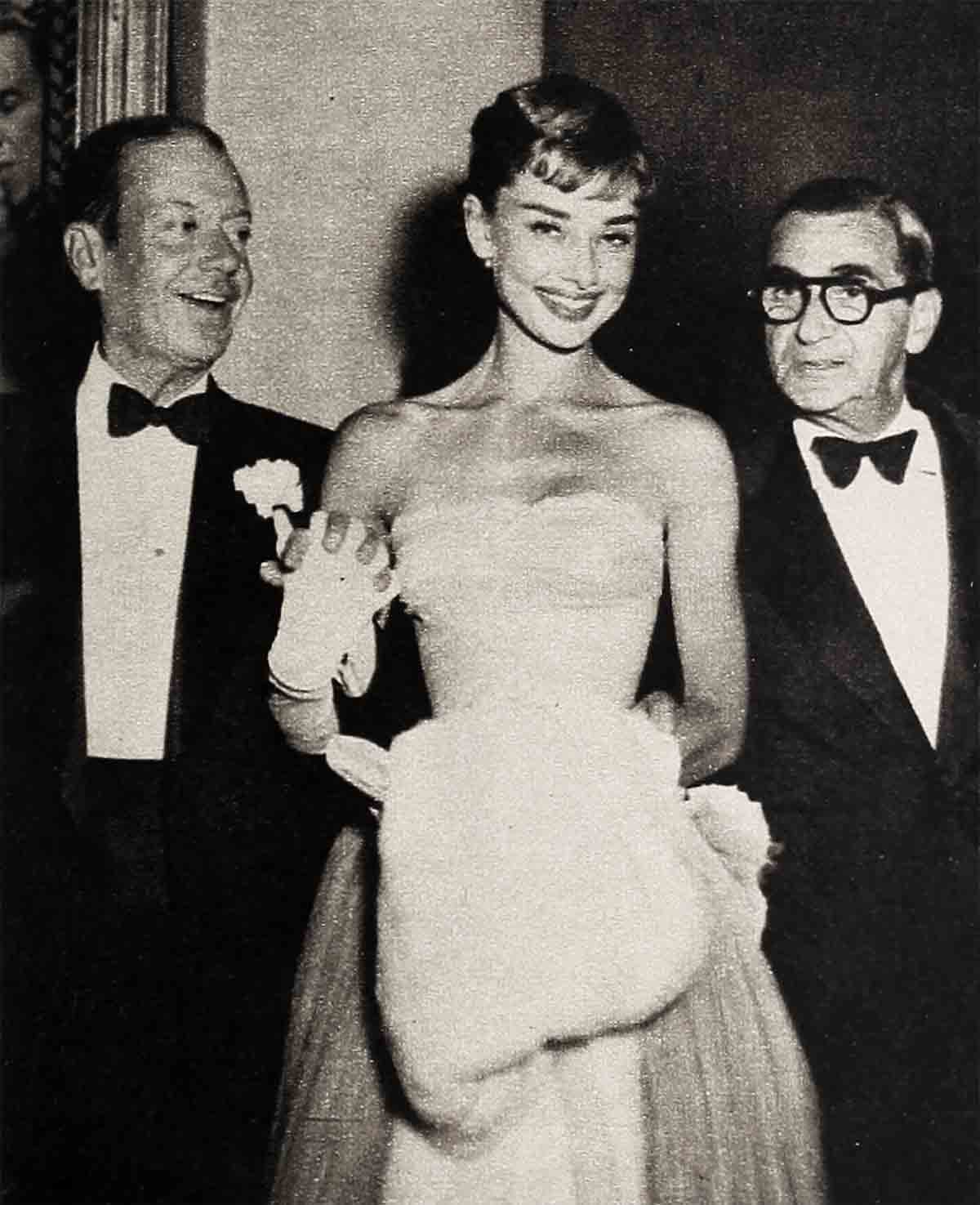
Bing started visiting her on the set, an unheard of thing for him to do.
“But there was no romance between Bing and me,” she told this writer. “He is delightful company and I only had one real date with him. I like people who are light-hearted and witty because I had plenty of austerity in my life.”
The reason why a romance didn’t flourish between Audrey and Bing, is probably because she didn’t give it a chance. She is one young actress who is dedicated to her work, and while she is busy on a picture, social life is strictly taboo. She is of such a single purpose that she wouldn’t consider having a date at such a time.
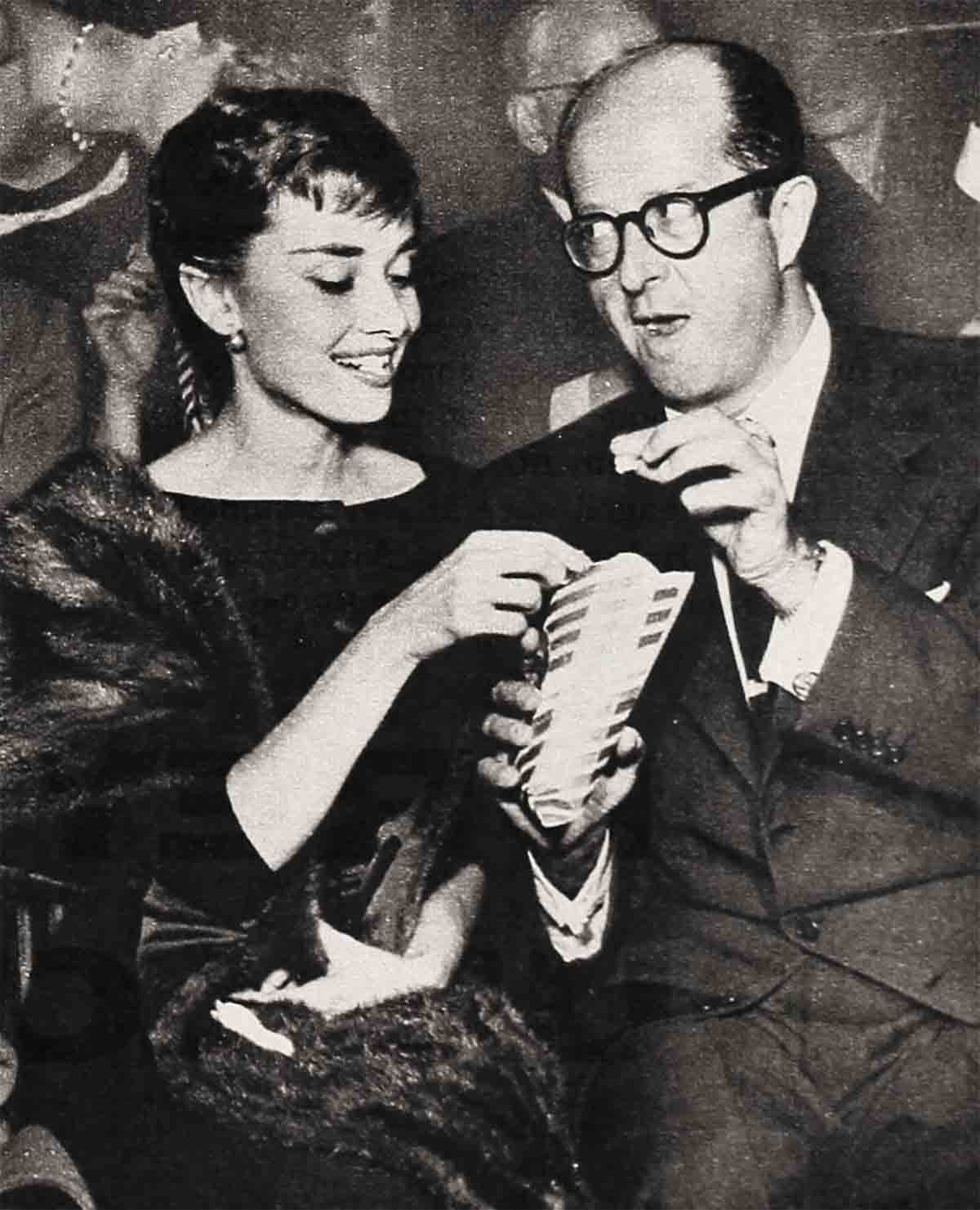
Michael Butler’s arrival in town caused another flurry of romance rumors to fly around Audrey’s queenly head. But after he was here for a week and she hadn’t once shown up in public with him, everyone had to conclude that Audrey was determined to stick to her routine of work.
Butler visited her on the set of the picture while he was ae Hollywood, and Audrey was very gracious to him, but in her boundless tact she was able to make him understand that she could not entertain him socially. They are all the other men who have come within her orbit.
Audrey’s director, Billy Wilder, even arranged for Groucho Marx to escort her to dinner at his home one night during a lull in the shooting schedule. She showed the same delight in Groucho’s company as she had registered for other interesting male companions, but on this occasion no romance rumors resulted.
Whether Audrey succeeded in giving Hollywood a true picture of her personality is still questionable. Other than being her natural self, in fact, she doesn’t seem to have made much effort in that direction. The people who worked with her on “Sabrina Fair” have only one answer for this—integrity! They used the word often in talking about the elfin young star.
It is plain that those who profess not to understand her have not taken the trouble to look at her past. The expectation that she was bound to follow the usual pattern of romances set by other young feminine newcomers to pictures is precluded by. the very nature of her childhood.
It would not be far-fetched to say that Audrey was born to maturity. She was a child of the second marriage of her aristocratic mother, Baroness Ella Von Heemstra, and the world in which she arrived in 1929 in Brussels, was a threatening one.
Later, when she was ten, Audrey’s mother and father, who was an intense politically-minded business man, were also divorced.
This alone would have been enough to leave a profound impression on an intelligent child, but there followed the grim war years during the German occupation in the Netherlands. Even then Audrey had a sense of values, and helped with the underground movement by giving dance recitals to help raise funds in fighting Nazism.
During this time she saw one half-brother, Alexander, deported to Germany and another one, Ian, had to go into hiding away from the family because of work for the resistance forces.
Audrey and her family were often without enough food, and were under constant surveillance by military police.
“This is the kind of life that teaches one to know oneself,” she told me. “And my mother made the lesson complete by teaching me good common sense in facing the situation realistically.
“If I said I couldn’t do a thing, mother insisted that other girls had done even harder things. This kept me going when, at eighteen, I was doing twenty-one shows a week in London in three different theatrical jobs.
“Perhaps these facts about how I grew up will explain why I am what I am,” she went on. “I have simply gone too far in a serious venture to sacrifice it now by assuming any other obligations until I am the star I feel I must try to become. This is a necessity to me, not for the sake of becoming a grand success, but to help bring to others some of the joy I missed as I was growing up.
“So far I feel I am only a publicity star, and I must prove myself. If I can make people happy by bringing them warmth and a better understanding of their problems through the characters I portray, then I feel I will have succeeded.”
This, then, is Audrey Hepburn’s real love—her career, and to those who don’t understand her sidetracking of real life romance the answer lies in her remarkable unselfishness, which ironically is helping her better to find herself.
THE END
—BY MARK FLANDERS
It is a quote. SCREENLAND MAGAZINE APRIL 1954




